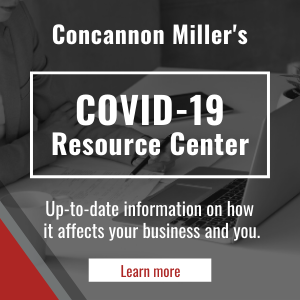 Every day, there seems to be something new as it relates to Paycheck Protection Program.
Every day, there seems to be something new as it relates to Paycheck Protection Program.
The only thing that is really certain is that everything is still very uncertain. We still await final regulations and guidance from Treasury on the matter of forgiveness.
Our eyes and ears remain glued to any information that might be helpful to you as you plan for the protection of your business and care of your employees and customers in these uncertain times. Below are three important updates you should be aware of:
Loan Audits: The PPP FAQs were updated to include an official statement on the audit of loans of $2 million and above: “To ensure PPP loans are limited to eligible borrowers in need, the SBA has decided that it will review all loans in excess of $2 million, in addition to other loans as appropriate, following the lender’s submission of the borrower’s loan forgiveness”. So, those with loans less than $2 million may need to be prepared for an audit, as well.
 Tax Implications: Finally, the IRS has issued some guidance related to the deductibility of expenses paid via PPP loan funds that are subsequently forgiven. The CARES Act states that a forgiven loan will not be characterized as income which is a departure from how a "discharge of indebtedness" would normally be treated – essentially making the loan forgiveness amount "tax exempt income."
Tax Implications: Finally, the IRS has issued some guidance related to the deductibility of expenses paid via PPP loan funds that are subsequently forgiven. The CARES Act states that a forgiven loan will not be characterized as income which is a departure from how a "discharge of indebtedness" would normally be treated – essentially making the loan forgiveness amount "tax exempt income."
Nowhere in the CARES Act does it address whether deductions are allowed for payments of eligible costs (payroll, rent, utilities, etc) by a recipient of a loan if the loan is later forgiven. This latest notice from the IRS provides that guidance which states that a deduction will not be allowed for eligible costs paid using PPP funds that are later forgiven. They cite case law which denies deductions for otherwise deductible payments for which the taxpayer receives reimbursement.
With that being said, you will indirectly be paying tax on any amount of PPP loan that is forgiven. As a result, tax planning will be crucial this year to identify the cash needs and timing for income taxes.
Document to Prove Need: With so much chatter about “need” and while the circumstances of this time and all that you and your people are encountering each day as you keep your businesses open to serve communities are fresh in your minds, we recommend that you document, document, document.
| Question | Documentation |
| What were your concerns six weeks ago? |
|
| What efforts did you take prior to the passing of the PPP legislation to “shore up” your business? |
|
| How have your sales been impacted? |
|
| How have your operations been impacted? |
|
| How has your cash flow and working capital been impacted? |
|
| How are you staffing your differently as a result of receiving PPP funding? |
|
| How have your administrative and management teams been taxed through this? |
|
| How have you been involved in caring for your local communities throughout this pandemic? |
|
As we have been doing over the past six weeks, we will continue to talk regularly until we see this through to the end. And as soon as we have guidance on all the many unanswered questions, rest assured you will be the first to hear about. Until then, continue taking care of yourselves and your business, and we will continue providing you with these updates as they become available.
If you are concerned that you are not getting the personal guidance and advice important to your business, we can help. Click here to schedule a discussion.





